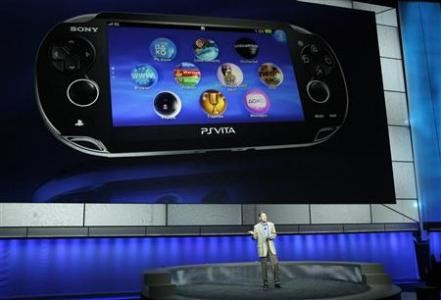LulzSec recieve donations to carry on war with Sony: Will continued hacks damage PlayStation Vita sales?

With LulzSec having just issued a statement promising to continue its ongoing cyber-war against tech giant Sony, many analysts have begun to speculate just how damaging the groups continued assault could be on Sony's forthcoming PlayStation Vita console.
LulzSec, the hacker groups responsible for two post-PSN related attacks, has according to its Twitter page received several sizable donations from unnamed sources to help it continue its campaign against Sony.
One of the most recent tweets read, "Someone just sent over $7200 worth of BitCoins. Whoever you are...Thank you..."
Since the revelation, consumers and critics alike have begun to speculate just how damaging continued hacks on Sony's networks could be on the company's already bruised reputation and by extension new console's opening sales later this year.
LulzSec's opening shots
LulzSec first targeted Sony just as the company was coming out of its previous PSN cyber-attack troubles.
The group originally targeted Sony's pictures entertainment website. It subsequently claimed responsibility on its Twitter page and website, posting the date stolen as proof of the hack. The data included the personal information of many of the website's users.
In its opening press release, the group cited Sony's networks continuing weakness and mishandling of the PSN outage as its motivation for the cyber-attack.
"Our goal here is not to come across as master hackers, hence what we're about to reveal: SonyPictures.com was owned by a very simple SQL injection, one of the most primitive and common vulnerabilities, as we should all know by now.
"From a single injection, we accessed EVERYTHING. Why do you put such faith in a company that allows itself to become open to these simple attacks?"
The post continued, "What's worse is that every bit of data we took wasn't encrypted. Sony stored over 1,000,000 passwords of its customers in plaintext, which means it's just a matter of taking it. This is disgraceful and insecure: they were asking for it."
Sony has since confirmed that an attack occurred on its website, but listed the number of accounts compromised as 37,500 rather than LulzSec's 1,000,000 claim.
Later, the group claimed responsibility for a second attack, this time on Sony's BMG music department. After the attack the group once again issued a statement reiterating its desire to continue targeting Sony.
"We've recently bought a copy of this great new game called 'Hackers vs Sony,' but we're unable to play it online due to [PlayStation Network] being obliterated.
"So we decided to play offline mode for a while and got quite a few trophies. Our latest goal is 'Hack Sony 5 Times,' so please find enclosed our 5th Sony hack.
"ACHIEVEMENT UNLOCKED: HACK SONY 6 TIMES! Oh damn, we just did it again, please also find enclosed internal network maps of Sony BMG".
The Sony PlayStation Vita
The PlayStation Vita, was revealed just days ago at Sony's E3 press conference.
The new handheld is set to be the next-generation in Sony's current line-up of portable consoles and is due for release during the holiday season of this year.
The main selling point of the new handheld -- past updated graphics and control options -- is the Vita's inclusion of 3G connectivity options. The PlayStation Vita is set to become the first handheld gaming device to house full 3G cellular communications tech.
The idea being that the Vita will allow users to access their PSN account anywhere they like, making use of its PlayStation Store and Qriocity music services on the go.
Why an ongoing hacking assault could damage Vita sales
Confidence in Sony as a company has without a doubt hit an all time low. While the PSN crisis cannot take the full credit for its near $4 billion loss in the previous financial year, the company did by its own admission estimate the hack as costing it at least $177 million.
During the outage retailers including GAME, GameStation and HMV, reported mass PS3 and PSP trade-ins. Since then the companies have also reported a drop in the number of consoles sold each month -- though this could also be explained by the Vita's unveiling and the accidental leak that the next generation PlayStation 4 is in development.
If such an episode could cause such widespread damage to Sony when it was still strong, then a similar attack now could debatedly inflict a fatal blow to the tech giants reputation.
While LulzSec's current attacks have been nowhere near the scale of the PSN's security breach in April, the fact that the group appears to be gaining some level of public support and at points funding could lead to an escalation in the scale of its attacks.
Already consumers seem to be expressing a lack of trust towards Sony. More and more users seem unwilling to store their personal information or payment details on the company's networks.
This fact could create serious problems for the Vita, due to the fact that its primary selling point is its addition of 3G and increased connectivity with Sony's online services.
While this is all currently speculation as LulzSec is yet to make its next move against Sony, the simple threat is itself causing damage, hovering ominously like a storm cloud over Sony's horizon, making users less willing to pay for the company's high-end consoles.
Whether this trend will translate into low launch sales for the Vita, only time will tell.
UPDATE: LulzSec has since published data regarding the U.K.'s NHS healthcare service.
© Copyright IBTimes 2025. All rights reserved.





















